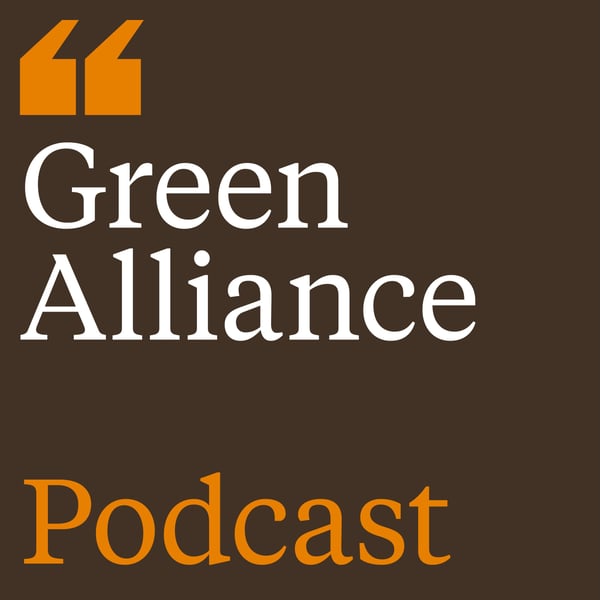Less is more: rethinking consumption with Patrick Grant
The Green Alliance Podcast
Green Alliance
4.9 • 34 Ratings
🗓️ 15 April 2025
⏱️ 36 minutes
🧾️ Download transcript
Summary
Transcript
Click on a timestamp to play from that location
| 0:00.0 | Welcome to the Green Alliance podcast. We are the charity and think tank that is dedicated to |
| 0:08.3 | achieving ambitious leadership for the environment. I'm Libby Peek. I'm head of resource policy |
| 0:13.3 | and senior fellow at Green Alliance and I'm delighted to be joined today by Patrick Grant. |
| 0:18.2 | Clothing designer, businessman and judge of BBC's Sewing Bee, among plenty of other labels, |
| 0:22.8 | I could give him. |
| 0:24.0 | We're going to talk today about his new book, Les, which I'd describe as an impassioned |
| 0:28.8 | defence of quality of workmanship and manufacturing, and of the idea that we should |
| 0:33.4 | stop buying so much rubbish. |
| 0:35.5 | And I personally love this idea, as it's expressed in the subheader, |
| 0:38.8 | which also says that this will make us happier as a society. And it touches on various everyday objects, |
| 0:44.5 | but focuses in on the fashion industry that he's been operating in for decades, and which now |
| 0:49.8 | seems to be based on the idea that we should have more, always more. And the book contains some |
| 0:55.3 | pretty startling statistics. And we've done quite a bit of work in this area, but I didn't know |
| 0:59.5 | that it was this shocking, including that some fast fashion brands are now releasing 2,000 new |
| 1:04.6 | styles a month, and one in particular, Sheen was, as of 2022, releasing close to 4,000 new styles a day, which is pretty staggering. But I'd say that |
| 1:13.7 | the book starts with a trot through history and examines how we got here, starting with very early |
| 1:18.6 | pre-industrial paucity, when a new set of clothing would cost the equivalent of a servant's yearly |
| 1:23.9 | wages, through to the rise of the brand and of American consumerism and on to today. |
| 1:29.4 | And that history is where I want to start as well today. As I'm curious to know, Patrick, |
| 1:35.1 | welcome to the podcast, by the way. Thank you for having me. I'm curious to know if you think we |
| 1:39.9 | ever got it right. And as I'm sure you're not suggesting, we go back to the day of pre-industrial |
| 1:44.6 | posity where we only have one set of clothes. So what's your vision for getting it right? And how do we |
... |
Transcript will be available on the free plan in 15 days. Upgrade to see the full transcript now.
Disclaimer: The podcast and artwork embedded on this page are from Green Alliance, and are the property of its owner and not affiliated with or endorsed by Tapesearch.
Generated transcripts are the property of Green Alliance and are distributed freely under the Fair Use doctrine. Transcripts generated by Tapesearch are not guaranteed to be accurate.
Copyright © Tapesearch 2025.

